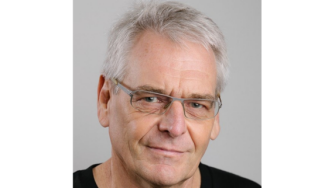Prof. Gernot Heiser elected to the German National Academy of Science Leopoldina
The election recognises the importance and global visibility of Prof. Heiser’s work in the field of cybersecurity.
The election recognises the importance and global visibility of Prof. Heiser’s work in the field of cybersecurity.

Scientia Professor Gernot Heiser, a leading researcher in the field of cybersecurity, has been elected to the German National Academy of Science, the Leopoldina. The Leopoldina is the oldest continuous scientific academy in the world and unites researchers with outstanding expertise in their respective fields.
Scientia Professor Gernot Heiser is the John Lions Chair of Operating Systems at UNSW. He works on fundamental solutions to cybersecurity challenges by making systems truly trustworthy: secure, safe and dependable. Prime application areas are safety- and security-critical cyberphysical systems such as aircraft, cars, medical devices, critical infrastructure and national security.
He is the founder and leader of the Trustworthy Systems Research Group, known as world leaders in applying formal methods (i.e. mathematical proof techniques) for ensuring the security and safety of real-world computing systems. The group’s seL4 microkernel is the most thoroughly verified operating system kernel in the world.
With his election, the Leopoldina honours Professor Heiser’s scientific achievements as well as the importance and global visibility of Trustworthy Systems’ work in the field of cybersecurity.
The Leopoldina was founded in Schweinfurt in 1652 and became the German National Academy of Sciences in 2008. It advises politicians and the public on current scientific and science policy issues and helps shape debates on topics of social importance. The Academy is independently run and dedicated to the common good.
Since its foundation in 1652, more than 7,000 outstanding scientists were appointed members, including Marie Curie, Charles Darwin and Albert Einstein. The Academy currently unites around 1,600 members from over 30 countries under its umbrella.